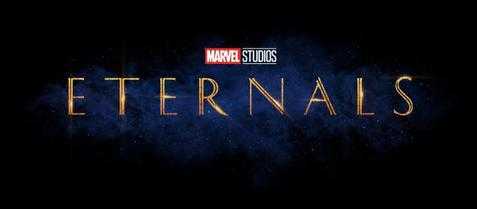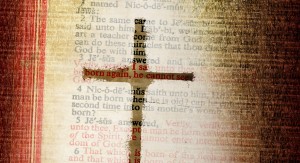Marvel Movie ‘The Eternals’ to Include Homosexual Superhero, Same-Sex Kiss
 The upcoming film “The Eternals”, based on the fictional characters depicted in Marvel Comics books, will include a homosexual superhero and his “spouse,” who will kiss on screen, the actor who plays his partner has revealed.
The upcoming film “The Eternals”, based on the fictional characters depicted in Marvel Comics books, will include a homosexual superhero and his “spouse,” who will kiss on screen, the actor who plays his partner has revealed.
“I just shot a Marvel film with the first openly gay superhero: ‘The Eternals.’ I’m married to the gay superhero Phastos, played by Atlanta’s Brian Tyree Henry, and we represent a gay family and have a child,” actor Haaz Sleiman told NewNowNext.
When asked if there would be kissing in the film, he replied, “Oh yeah, absolutely, and it’s a beautiful, very moving kiss. Everyone cried on set.”
“For me, it’s very important to show how loving and beautiful a queer family can be,” Sleiman added. “Henry is such a tremendous actor and brought so much beauty into this part, and at one point I saw a child in his eyes, and I think it’s important for the world to be reminded that we in the queer community were all children at one point. We forget that because we’re always depicted as sexual or rebellious. We forget to connect on that human part.”
The film is scheduled to open in theaters in November and will be distributed by Walt Disney Studios.
Sleiman, who was raised Muslim but now simply identifies as “spiritual,” had previously played Jesus in the 2015 National Geographic film based on the Bill O’Reilly book “Killing Jesus.” He told reporters at that time that the role made him less judgmental of others as he came to view Jesus as inclusive.
“[H]ow could you not fall in love with Jesus and what He stood for? It’s that simple for me. It’s like one of the most beautiful things that you can apply to your life. And I’m still trying to, cause it’s not easy,” he said, according to CBN News. “Love your enemy. Judge not so that you not be judged. Forgive them so that you [can] be forgiven. If you do that, it’s freedom and it’s the truth. For me, it is at least.”
“I think what was magnificent about this story and Him, and how He handled it, was that He really saw the bigger picture and the truth of things. He was not caught up in the games that were being played. He didn’t judge the games, because He didn’t judge humanity,” Sleiman claimed. “He actually saw beauty in all of it. He saw even beauty in the chaos.”
“He had only love for the people, even if they were the ones who were acting out of ignorance or because they couldn’t see. … Jesus saw the truth. He was in that place of knowing the truth. He also came from a place of love and not judgment, even with those who came at Him and treated Him badly.”
 Jesus said in Matthew 7:13-14, the same chapter from which many singly lift the “judge not” teaching, “Enter ye in at the straight gate, for wide is the gate and broad is the way that leadeth to destruction, and many there be which go in thereat. Because strait is the gate and narrow is the way which leadeth unto life, and few there be that find it.”
Jesus said in Matthew 7:13-14, the same chapter from which many singly lift the “judge not” teaching, “Enter ye in at the straight gate, for wide is the gate and broad is the way that leadeth to destruction, and many there be which go in thereat. Because strait is the gate and narrow is the way which leadeth unto life, and few there be that find it.”
He also said in verse 21, “Not every one that saith unto me, ‘Lord, Lord,’ shall enter into the kingdom of Heaven, but he that doeth the will of My Father which is in Heaven.”
In Luke 11:3-5, He declared, “Suppose ye that these Galilaeans were sinners above all the Galilaeans, because they suffered such things? I tell you, Nay, but except ye repent, ye shall all likewise perish. Or those eighteen, upon whom the tower in Siloam fell, and slew them, think ye that they were sinners above all men that dwelt in Jerusalem? I tell you, Nay, but except ye repent, ye shall all likewise perish.”
Jesus taught in John 3 that men must be regenerated by the second birth — a working of the Holy Spirit — or they cannot see the kingdom of God.
“He that believeth on Him is not condemned, but he that believeth not is condemned already, because he hath not believed in the name of the only begotten Son of God,” He outlined in John 3:18-20. “And this is the condemnation, that light is come into the world, and men loved darkness rather than light because their deeds were evil. For every one that doeth evil hateth the light, neither cometh to the light, lest his deeds should be reproved.”
Become a Christian News Network Supporter…







Comments are closed.